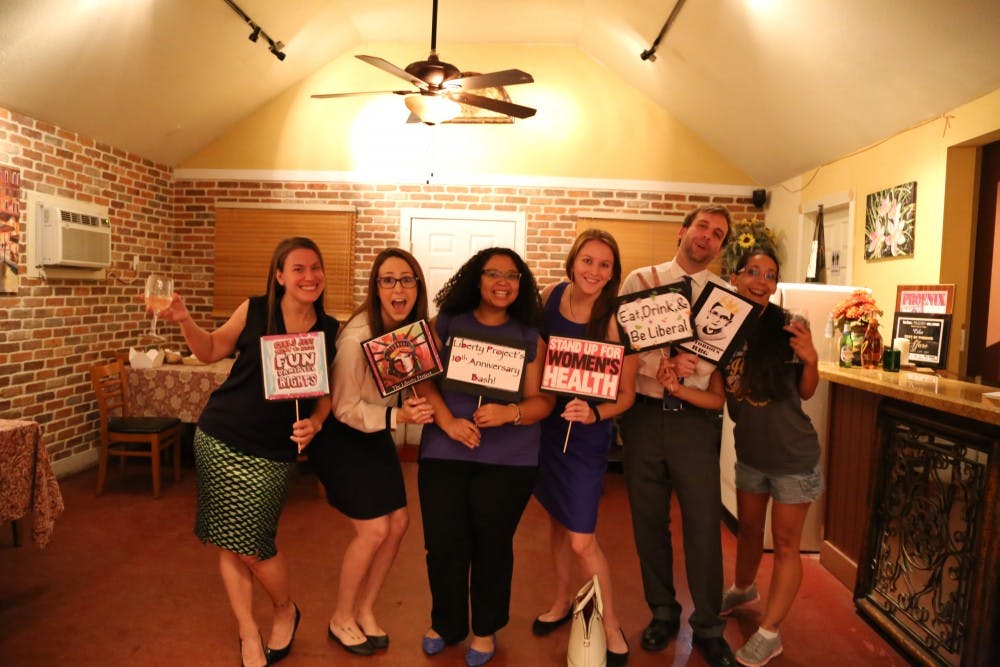A woman can put tattoos on her body, tan her body, pierce her body, dress her body however she likes, but when it comes to what is growing in her uterus, some believe she does not have the right to decide what happens.
The Liberty Project is trying to defend women and their right to their own bodies.
Abortion rights and planned parenthood has been the center of deep-rooted controversy this year, which may lead to another government shutdown.
It started about 10 years ago at ASU as a way for law students to network with other students, attorneys and interested community members while defending reproductive rights.
Leon Silver, a founding member, ASU law school graduate and current partner at Gordon & Rees, LLP, noticed a lack of volunteer attorneys to help young girls in the community.
“Planned Parenthood, the organization, is really focused on healthcare,” Leon says. “They do have a legal team, but there’s a community need for advocacy for sex education, for abortion rights, for reproductive rights, for reproductive healthcare.”
According to Silver, the group is modeled after Ben Franklin’s "Junto" where the brightest minds in Philadelphia would meet and talk while having a drink.
“[Junto] was a think tank,” Silver says. “It was a social club. It was the best and the brightest.”
Silver says he chose to focus the group on women’s rights because the right to choose is an essential part of both a woman’s freedom and liberty.
“The right to control her own body is the essential right that a woman has," Silver says. “I just abhor the idea of anybody or any government telling a woman what she can or can’t do with something that is growing inside her. That to me is what freedom is all about, you don’t tell people what to do with their bodies.”
The group has worked on rewriting sex education curriculum in Arizona, writing pro-choice legislation and more.
Past president Cory Tyszka says she first joined the group because the group’s beliefs matched up with her own beliefs toward personal autonomy and a person’s right to make their own medical decisions.
“That’s something I believe the government should stay out of and that should be a decision between a person and her doctor,” Tyszka says.
Heather Ivery, the group’s current secretary and a second year law student, says the group has helped her both in school and professionally.
“It's really helped me kind of navigate the legal waters,” Ivery says. “It’s hard when you don’t really know what’s what in the legal field.”
Silver says the unique thing about this group is that there is no agenda. It is up to the students in the group to decide what they want the group to do in relation to reproductive rights.
“There is no planning for the future,” Silver says. “There are some projects that they’re working on now that we’ve been working on for a long time but the next group can decide not to do them at all.”
The group doesn’t only focus on legal work, it is also a social group and place to network, Tyszka says.
“Part of the nature of the group is that it ended up being a source of networking and Leon Silver feels strongly about giving students the opportunity to network with people in the legal community who can later help their careers,” Tyszka says.
Silver says he believes that the Liberty Project has become a kind of community over the years.
“There are the lawyers who were in our first class and are now partners in law firms,” Silver says. “They see Liberty Project on somebody’s resume and that means something to them.”
Ivery says the group has a positive environment and is a great place to make friends as well professional connections.
“[The Liberty Project] provided me with a group of people that were similarly minded to me,” Ivery says. “Everyone in the group is pretty liberal so there’s no real political arguments or really big blow ups about anything because everyone is really similarly minded.”
Despite the controversial topic the Liberty Project covers, the group does not receive much backlash. It has received some attacks from individuals on its Facebook page, but no one has confronted them in person, she says.
According to Tyszka, Silver is at the helm of the group but is able to take a backseat and let the students lead when it comes to day-to-day activities.
“The group is young people in law school who are full of intellectual energy and curiosity and you want to take advantage of that and let them just think,” Silver says.
Tyszka says she is pleased with the impact this small group of students has been able to have in the community.
“We’ve made quite the impact and have been recognized for it in the community,” Tyszka says. “It’s really incredible what a small group of committed people have been able to do particularly in a state that is conservative when it comes to reproductive rights.”




